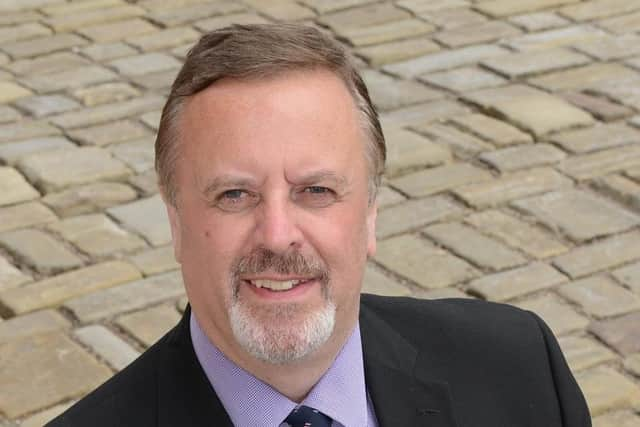Struggle against violent crime needs long-term funding – Mark Burns-Williamson


Albeit we still remain in the midst of this national public health crisis, it is imperative that we try to anticipate the threats that may lay dormant in its wake.
Serious violent behaviour is one such threat. It is a blight of an entirely different making, but one which is equally as potent in terms of the damage that it inflicts upon individuals, families and communities.
Advertisement
Hide AdAdvertisement
Hide AdThe West Yorkshire Violence Reduction Unit (VRU) is now into its second year, and even within this relatively short timeframe, its unique public health-led approach has begun to help turn the tide on violent crime and its drivers.


It starts from the principle that prevention is better than the cure and brings together specialists from health, police, local authorities, education, youth justice, prisons, probation, community organisations and others. This means looking at early intervention, prevention, education and partnership working to tackle the root underlying causes of violent crime.
Fundamental to its success, however, are the many micro-charities, groups and organisations that are intertwined and embedded within our local communities. For instance, up to March 2020, the VRU had commissioned 35 local violence reduction interventions engaged with over 16,000 people aged under 25.
These have included place-based interventions commissioned in each of the five West Yorkshire local authority areas – projects such as ‘Sunnyvale’ delivering in Calderdale and ‘Catch on Wheels’ at The Nowells in Leeds.
Advertisement
Hide AdAdvertisement
Hide AdBy forging strong relationships and supporting these methods, we have quickly been able to make ground in reducing the number of violent incidents, leading to fewer victims.


Unfortunately, it is these very groups that are being hit disproportionately during the Covid pandemic and while we have been able offer a level of financial stability to ensure their continued existence, it remains a constant challenge.
The economic burden presented by the pandemic threatens to derail the progress we have made, endangering key partnership links. We cannot be lulled into a false sense of security, believing that violent crime has somehow subsided.
Failing to realise that we may be residing in the eye of the storm would be extremely detrimental to the future of many young people who are most susceptible to serious violent crime. When we eventually emerge out of this pandemic and return to relative normality, we will undoubtedly see a bigger change in the dynamics of crime trends.
Advertisement
Hide AdAdvertisement
Hide AdThe issue of serious violent crime and exploitation has not gone away. Moreover, it has only been subdued by the social repercussions of the virus. It is absolutely vital that we prepare for what could follow and this requires sustained investment for Violence Reduction Units and other youth work.
To lose the local groups and agencies that have the influence and connections with our young people could be potentially devastating, and contribute to future rises in serious offences.
In partnership with the West Yorkshire and Harrogate Health Care Partnership, we have already established a ‘Covid-19 Response Network’ to support partners. The priority has been to ensure the communities of West Yorkshire can access support to remain and feel safe during the pandemic.
Future plans include looking at the risk and vulnerability exposed by Covid-19, with research projects already under way revolving around education inclusion and social inequalities which I believe are key.
Advertisement
Hide AdAdvertisement
Hide AdThere is also the continued joint working with West Yorkshire Police on their ‘Operation Jemlock’ and a focus on alcohol-related violence. These alone are not enough and there has to be a wider cognisance of the steps that must be taken, which will enable us to adapt to the ever-changing landscape.
The West Yorkshire Violence Reduction Unit will discover soon whether Government funding will again be available to help in our long-term approach to tackling violent crime.
We know this is a generational challenge and that is why I have consistently called for sustained Government investment over a three- to five-year period.
Not acting now will have far-reaching consequences and there will be no violent crime vaccine to come to our aid.
Advertisement
Hide AdAdvertisement
Hide AdMark Burns-Williamson is the Police and Crime Commissioner for West Yorkshire.
Support The Yorkshire Post and become a subscriber today. Your subscription will help us to continue to bring quality news to the people of Yorkshire. In return, you’ll see fewer ads on site, get free access to our app and receive exclusive members-only offers. Click here to subscribe.
Comment Guidelines
National World encourages reader discussion on our stories. User feedback, insights and back-and-forth exchanges add a rich layer of context to reporting. Please review our Community Guidelines before commenting.